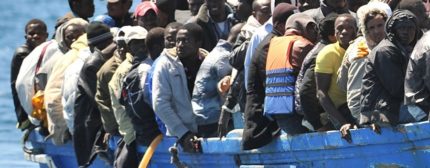Syria Update – A fourth member of Syrian President Bashar Assad’s inner circle has died from wounds suffered during Wednesday’s suicide bombing, a day after President Assad on Thursday finally made an appearance on state TV, his first since the bombing occurred.
Gen. Hisham Ikhtiyar, who was Syria’s national security chief, died early Friday morning, the fourth member of President Bashar Assad’s inner circle to die. Gen. Assef Shawkat, the deputy defense minister who was married to Assad’s elder sister, Defense Minister Dawoud Rajha and Hassan Turkmani, a former defense minister, all died in the blast on Wednesday.
Assad looked calm and composed during his appearance on state TV. Though Assad normally doesn’t make many public appearances, there was speculation after the bombing that he had fled Syria and was directing his staff from an outpost in the tourist town of Latakia. World leaders, including in the Obama administration, have tried to use the killing of his top aides as a sign that Assad is not in control of Syria and needs to leave. In the meantime, Britain has acted to freeze assets worth £100m belonging to Assad and Syrian leaders, according to the BBC.
The streets of Damascus, the capital Syria, have begun to resemble a war zone as the rebels try to overtake Assad’s security forces. The violence in Syria has been going on for 16 months.
“It is a war going on here, literally a war,” a 25-year-old woman in the Muhajereen neighborhood told Time. The sounds of battle had kept her up all night and she stayed home from work because she feared random gunfire, she added.
“It reminded me of that night when the Americans shelled Baghdad nine years ago,” said the woman, who spoke on condition of anonymity because she feared for her safety. “I was watching it on TV, but today I’m living a very similar situation.”
Even though Assad’s powerful military remains mostly loyal — suggesting a total collapse may not be imminent — the rebels appeared to be making startling gains as the civil war intensified.
Besides the fighting in Damascus, about a half-dozen rebels took over a Syrian border crossing near the Iraqi town of Qaim, said Iraqi army Brig. General Qassim al-Dulaimi. Rebels overtook a Syrian army outpost near the Syrian-Iraq border after clashes that killed 21 Syrian soldiers, he added.
In addition, amateur video posted online showed rebels taking over the Bab al-Hawa border crossing with Turkey, where they stomped on portraits of Assad. The Associated Press could not independently verify the video because the government bars most media from working independently in the country.
Analysts said the regime was clearly shaken by the violence in the heart of its power base of Damascus, but observers should not expect regime change anytime soon.
“We should not get carried away with speculating about the impending fall of the regime,” said Salman Shaikh, director of the Brookings Doha Center and an analyst on regional politics. He said the regime’s forces “are still showing a certain amount of cohesiveness in battle.”
Even if Assad did leave power, the opposition is widely perceived to be far too disorganized to take over. There is no clear candidate to lead the country in Assad’s absence, and the grim sectarian tint to much of the violence suggests any power vacuum will usher in a bloodbath.
Sunnis make up most of Syria’s 22 million people, as well as the backbone of the opposition. But Assad and the ruling elite belong to the tiny Alawite sect, an offshoot of Shiite Islam.


